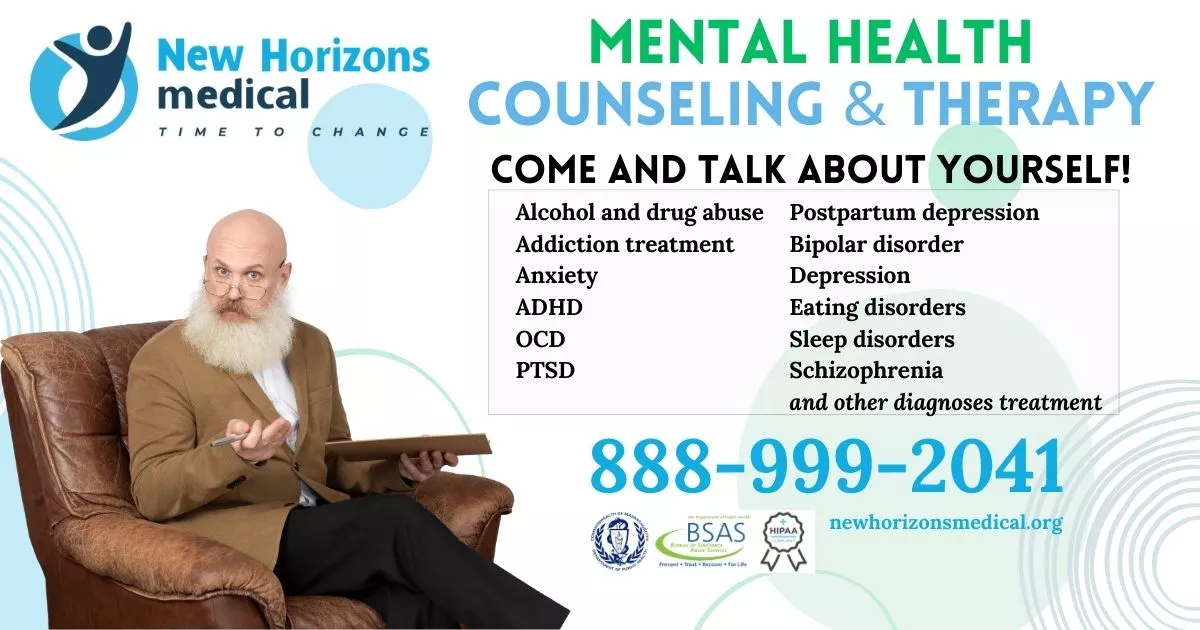Marriage Counselling Success Stories: What Changed Their Relationship
Unlocking the Keys of Mental Health And Wellness: A Summary of Counseling and Therapy Choices
Psychological health and wellness is a complex and essential facet of general wellness. Many counseling and therapy alternatives exist to deal with various psychological challenges. Each method provides distinct advantages and methods tailored to private needs. Recognizing these options is crucial for any individual looking for to improve their mental health and wellness. Mental Health Resources. What elements should one take into consideration when discovering these methods? The answer may expose a path to a healthier emotion
Understanding Mental Health And Wellness and Its Significance
Mental health incorporates the psychological, emotional, and social health of individuals, considerably influencing just how they think, really feel, and act. Its importance can not be overstated, as it impacts every facet of life, consisting of relationships, job performance, and overall top quality of life. Individuals with good mental wellness tend to manage anxiety much more successfully, preserve healthier connections, and make notified choices. Alternatively, bad psychological health can result in emotional distress, damaged performance, and different psychological disorders, which may require expert intervention. Recognizing mental health and wellness is necessary for recognizing the signs of distress and the need for support. Recognition likewise promotes compassion and minimizes preconception, encouraging people to look for aid when necessary. By prioritizing mental health, areas can foster atmospheres that support psychological wellness, eventually resulting in much healthier, more resilient individuals. This foundation serves as a critical step toward efficient psychological health and wellness therapy and therapy alternatives.
Kinds Of Counseling Approaches
Therapy approaches differ extensively, each customized to meet the distinct requirements of individuals seeking support. Among one of the most common types are cognitive-behavioral therapy (CBT), which concentrates on recognizing and transforming negative thought patterns, and person-centered treatment, which stresses compassion and acceptance. Psychodynamic treatment checks out subconscious processes and previous experiences to recognize existing behavior, while solution-focused quick therapy aims to recognize remedies instead of investigate problems.Additionally, family members treatment addresses relational dynamics and communication within households, promoting healthier interactions. Group therapy offers a common room for participants to share experiences and sustain each other. Other approaches consist of existential treatment, which encourages people to discover significance and function, and art or songs treatment, which uses innovative expression as a therapeutic tool. Each strategy uses unique strategies and philosophies, enabling customers to discover the most appropriate approach for their personal development and healing journeys.
Discovering Different Therapy Techniques
In the domain of mental wellness counseling, various therapy methods offer distinctive strategies to therapy. Cognitive Behavior Therapy emphasizes the link in between ideas and actions, while Psychodynamic Treatment discovers unconscious impacts on emotional health. Additionally, Mindfulness-Based Strategies promote present-moment recognition as a way to enhance emotional regulation and overall mental health.
Cognitive Behavior Modification
Cognitive Behavior Modification (CBT) stands out as one of the most commonly exercised and looked into techniques in mental health therapy. This strategy concentrates on the affiliation in between ideas, sensations, and behaviors, emphasizing that altering unfavorable idea patterns can lead to enhanced psychological wellness and behavioral changes. CBT is structured, generally involving a restricted variety of sessions, and aims to equip people with functional abilities to handle their signs. It is effective for a variety of conditions, consisting of anxiety disorders, depression, and trauma. By making use of strategies such as cognitive restructuring and direct exposure therapy, CBT promotes strength and empowers customers to challenge challenges head-on, making it a useful alternative in the landscape of mental wellness therapies.
Psychodynamic Therapy Approaches
Psychodynamic treatment methods supply a deep exploration of the unconscious mind and its influence on actions and emotional wellness. Rooted in Freudian concept, these methods stress the value of very early youth experiences and subconscious disputes. With methods such as totally free association, desire analysis, and transference, individuals obtain insight into their thoughts and sensations, cultivating self-awareness and understanding. This therapeutic technique encourages clients to uncover quelched emotions and unsettled problems, which can be essential in dealing with current emotional difficulties. By examining the interplay between existing actions and past experiences, psychodynamic treatment aims to promote psychological recovery and individual development. Inevitably, it offers a framework for people to discover intricate internal dynamics that affect their psychological wellness.

Mindfulness-Based Methods
While typical treatments commonly concentrate on past experiences, mindfulness-based techniques prioritize present-moment understanding as a pathway to psychological health. These approaches, including mindfulness-based cognitive therapy (MBCT) and mindfulness-based anxiety decrease (MBSR), urge people to engage totally with their thoughts and feelings without judgment. Professionals find out to observe their psychological states, cultivating a better understanding of psychological triggers and responses. This method not just minimizes signs and symptoms of anxiousness and anxiety but also enhances general psychological durability. By integrating mindfulness exercises, such as meditation and deep breathing, customers grow a feeling of peace and quality. Ultimately, mindfulness-based methods encourage individuals to browse life's obstacles with increased awareness and approval, promoting a much healthier partnership with their feelings and ideas.
The Function of a Specialist or Therapist
A proficient therapist or therapist plays a crucial function in sustaining people through their mental health and wellness trips. They offer a safe, non-judgmental space where customers can share their sensations and thoughts openly. Mental Health Resources. By utilizing different restorative techniques tailored to each individual's needs, therapists assist customers discover underlying issues that may add to their psychological wellness challenges.Therapists supply guidance and tools to handle anxiety, anxiety, depression, and other psychological troubles. Their training furnishes them to acknowledge patterns in habits and believed processes, assisting in insights that result in personal development. They likewise cultivate a solid healing alliance, which is vital for effective outcomes.Moreover, therapists stay dedicated to discretion and ethical requirements, making certain a trusting environment. Eventually, the role of a therapist or therapist is to equip individuals, motivating them to develop strength and healthier coping methods while guiding with life's intricacies
Exactly how to Select the Right Counseling or Treatment Alternative
Choosing the best therapy or treatment option starts with reviewing individual requirements. It is important to understand personal difficulties and objectives prior to discovering various treatment styles. This foundational action can greatly influence the efficiency of the selected technique.
Assess Your Requirements

Exactly how can individuals successfully assess their psychological wellness requires when examining counseling or treatment alternatives? They must reflect on their psychological state and identify specific problems, such as connection, depression, or stress and anxiety difficulties. Journaling can be a valuable tool for tracking thoughts and feelings over time. In addition, individuals may benefit from looking for responses from relied on good friends or household members pertaining to perceived modifications in behavior or state of mind. It is additionally handy to assess personal objectives for treatment, such as boosting coping abilities or investigate this site getting insight right into individual patterns. Ultimately, researching various counseling techniques and their viability for details requirements can help in making an informed choice. Eventually, self-awareness plays an essential function in selecting the right path for mental health support.
Explore Therapy Designs
While going across the varied landscape of treatment choices, people must take into consideration different styles of counseling to locate the very best suitable for their one-of-a-kind needs. Cognitive Behavioral Therapy (CBT) concentrates on changing negative thought patterns, while Psychodynamic Therapy explores past experiences and subconscious procedures. Humanistic strategies highlight personal development and self-actualization, promoting a supportive atmosphere. In addition, mindfulness-based therapies grow present-moment awareness, assisting psychological law. For those looking for structure, Solution-Focused Short Treatment targets particular objectives and remedies. Group therapy supplies a communal setting for shared experiences and support. Ultimately, individuals should certainly assess their preferences, convenience degrees, and details difficulties, guaranteeing they choose a therapeutic design that resonates with their personal trip toward psychological wellness.
Conquering Barriers to Seeking Help

The Advantages of Counseling and Treatment for Psychological Wellness
Looking for help for psychological wellness difficulties can result in considerable improvements in overall wellness. Counseling and treatment give individuals with a safe space to discover their feelings and thoughts, cultivating self-awareness and personal development. These specialist services gear up clients with dealing strategies and problem-solving abilities customized to their one-of-a-kind situations.Moreover, treatment can decrease symptoms of anxiousness, depression, and various other he has a good point mental wellness conditions, improving emotional durability. Normal sessions promote accountability and urge individuals to establish and achieve personal goals. Via different healing techniques, such as cognitive-behavioral treatment or mindfulness practices, customers find out to reframe adverse ideas and create healthier behaviors.Additionally, the therapeutic relationship itself can be a resource of support, helping to combat seclusion and isolation. Generally, participating in counseling and treatment is a positive action toward accomplishing psychological wellness, allowing people to lead even more fulfilling lives.
Often Asked Concerns
Just How Lengthy Does Therapy or Treatment Commonly Last?
The duration of counseling or treatment varies considerably, commonly lasting from a few sessions to several months or years. Aspects influencing this include the individual's particular needs, the sort of therapy, and healing objectives.
What Should I Anticipate Throughout My Very First Session?
During the very first session, people can anticipate an intro, discussion of problems, and the specialist's approach. They may finish analyses and develop objectives, cultivating a risk-free setting for open interaction and structure rapport.

Are There Any Type Of Risks Connected With Therapy?
Treatment can involve threats, such as emotional pain, vulnerability, or facing uncomfortable memories. While these difficulties might emerge, they can also cause individual growth and recovery, making the healing process facility yet potentially fulfilling.
Just How Can I Tell if My Specialist Is an Excellent Fit?
Determining if a specialist is an excellent fit includes reviewing convenience, communication design, and therapeutic technique. Favorable relationship and progression in the direction of objectives are indications of a suitable match, crucial for reliable psychological health and wellness assistance.
Will My Insurance Policy Cover Counseling or Treatment Procedure?
Establishing insurance policy coverage for therapy or therapy sessions frequently calls for speaking to the insurance provider straight. Plans differ considerably, so people should validate benefits, co-pays, and any type of essential pre-approvals prior to pursuing therapy solutions. Among the most typical kinds are cognitive-behavioral therapy (CBT), which concentrates on determining and transforming adverse thought patterns, and person-centered treatment, which stresses empathy and acceptance. Psychodynamic treatment explores previous experiences and subconscious procedures to understand present actions, while solution-focused brief treatment aims to recognize options rather than check out problems.Additionally, household treatment addresses relational dynamics and interaction within family members, fostering healthier communications. Various other strategies consist of existential treatment, which urges people to locate significance and function, and art or music treatment, which makes use of innovative expression as a healing tool. Cognitive Behavioral Treatment highlights the link in between habits and thoughts, while Psychodynamic Therapy checks out subconscious influences on emotional well-being. Cognitive Behavioral Therapy (CBT) focuses on transforming negative thought patterns, while Psychodynamic Therapy checks out past experiences and subconscious processes.